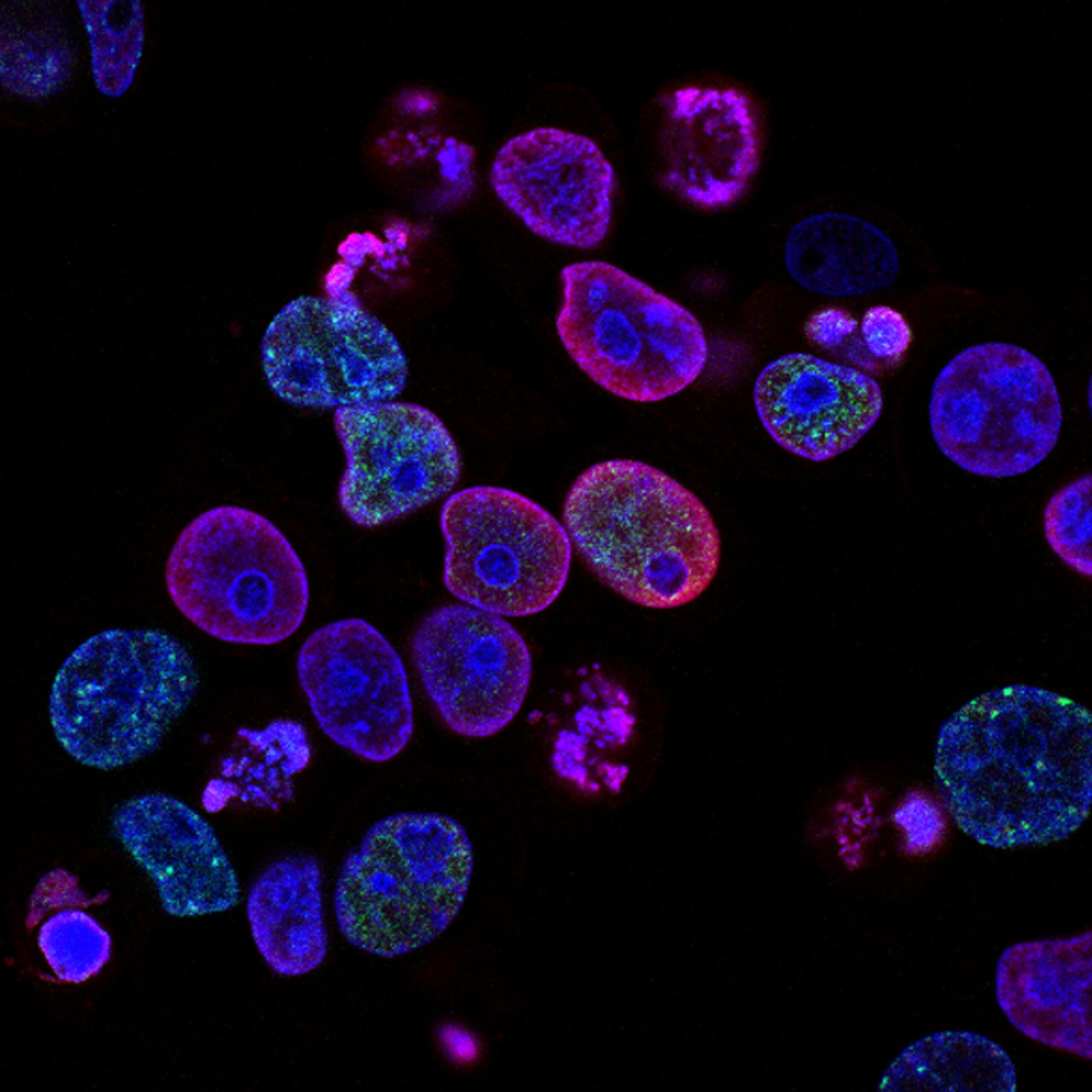In this article, we'll explore whether prostate problems could be an indication of prostate cancer. With the rising concern around prostate health, it's important to understand the possible warning signs and address them promptly. While experiencing prostate problems can definitely be distressing, it's crucial not to jump to conclusions and assume the worst. So, let's dive in and shed some light on this important topic, helping you gain a clearer understanding of the possible relationship between prostate problems and prostate cancer.
Understanding Prostate Health
Role of the Prostate Gland
The prostate gland is a small, walnut-shaped organ located below the bladder and in front of the rectum in men. It plays a crucial role in reproductive health as it produces and stores seminal fluid, which nourishes and transports sperm. The prostate gland is essential for fertility and plays a significant role in sexual function.
Common Prostate Problems
Prostate problems are conditions that affect the prostate gland, leading to various symptoms and potential complications. Some common prostate problems include benign prostatic hyperplasia (BPH), prostatitis, and prostate cancer. It is important to understand the differences between these conditions to make informed decisions about screening, diagnosis, and treatment options.
Prostate Cancer Overview
What is Prostate Cancer?
Prostate cancer is a form of cancer that develops in the cells of the prostate gland. It is the most common malignancy among men, excluding skin cancer. Prostate cancer usually grows slowly and remains localized to the prostate gland in its early stages. However, if left untreated, it can spread to other parts of the body, leading to life-threatening complications.
Risk Factors for Prostate Cancer
While the exact cause of prostate cancer is unknown, certain risk factors can increase the likelihood of developing this disease. Age is a significant risk factor, with the chances of developing prostate cancer increasing with age. Other risk factors include a family history of prostate cancer, African American ethnicity, obesity, and certain genetic mutations.
Prostate Cancer Statistics
Prostate cancer is a significant concern globally, affecting millions of men. According to statistics, it is estimated that one in every nine men will be diagnosed with prostate cancer during their lifetime. The American Cancer Society predicts that in the United States alone, there will be around 248,530 new cases of prostate cancer and approximately 34,130 deaths from the disease in a given year.

Signs and Symptoms of Prostate Problems
Urinary Problems
Prostate problems, including prostate cancer, can manifest with urinary symptoms that should not be ignored. These may include frequent urination, difficulty starting or stopping urine flow, weak urine flow, pain or burning during urination, and the feeling of incomplete bladder emptying. If you experience any persistent changes in your urinary patterns, it is crucial to consult a healthcare professional for evaluation.
Sexual Dysfunction
Prostate problems, particularly prostate cancer, can also impact sexual function. Symptoms may include erectile dysfunction, reduced sexual desire, or difficulty achieving orgasm. While these issues may be related to other factors, it is important to consider the possibility of prostate problems when experiencing sexual dysfunction, as early detection and treatment can lead to better outcomes.
Pain or Discomfort
Pain or discomfort in the pelvic area, lower back, hips, or thighs can be a sign of prostate problems, including prostate cancer. These symptoms can range from mild to severe and might be accompanied by other indications of prostate issues. It is vital to pay attention to any persistent or worsening pain and discuss it with a healthcare professional for proper evaluation.
Specific Symptoms of Prostate Cancer
Progressive Symptoms
As prostate cancer progresses, additional symptoms may manifest. These can include blood in the urine or semen, unexplained weight loss, fatigue, and bone pain. It is important to note that these symptoms can also be associated with other medical conditions, but if present, they warrant further investigation to rule out prostate cancer or other related issues.
Advanced Stage Symptoms
In advanced stages of prostate cancer, symptoms may become more severe and include urinary incontinence, bowel dysfunction, leg swelling, anemia, and significant bone pain. At this stage, the cancer may have spread to other parts of the body, requiring more aggressive treatment approaches. Early detection is crucial to prevent the progression of prostate cancer to advanced stages.

Distinguishing Between Prostate Problems and Prostate Cancer
Similarities and Differences
Prostate problems, such as BPH and prostatitis, share some symptoms with prostate cancer. Both can cause urinary problems, sexual dysfunction, and pelvic pain. However, there are important differences to consider. BPH is a non-cancerous enlargement of the prostate gland, while prostatitis is inflammation of the prostate. Prostate cancer, on the other hand, is the development of cancerous cells within the gland. It is essential to consult with a healthcare professional for an accurate diagnosis.
Caution on Self-Diagnosis
While certain symptoms may be associated with prostate problems or prostate cancer, self-diagnosis is not advisable. Many symptoms can be indicative of various medical conditions, and a professional evaluation is necessary to determine the cause accurately. Seeking medical advice and undergoing appropriate diagnostic tests is the most reliable way to obtain an accurate diagnosis and suitable treatment plan.
Screening for Prostate Cancer
Importance of Regular Check-ups
Regular check-ups with a healthcare professional are crucial, especially for men over the age of 50 or those with known risk factors for prostate cancer. These check-ups allow for early detection through screening tests, which significantly increases the chances of successful treatment. Early detection can help prevent the progression of prostate cancer to advanced stages and minimize potential complications.
Prostate Cancer Screening Tests
There are two primary screening tests for prostate cancer: the prostate-specific antigen (PSA) blood test and a digital rectal examination (DRE). The PSA test measures the levels of a protein called prostate-specific antigen in the blood. Abnormal PSA levels may indicate the presence of prostate cancer or other prostate-related conditions. The DRE involves a physical examination of the prostate gland through the rectum to check for any abnormalities or irregularities.

Diagnosis of Prostate Cancer
Medical History
When evaluating prostate health, a comprehensive medical history is essential. This includes discussing any symptoms, risk factors, family history of prostate cancer, and previous prostate-related conditions. A thorough medical history helps the healthcare professional assess the likelihood of prostate cancer and determine the appropriate diagnostic tests.
Physical Examination
A physical examination, including a DRE, is often performed to assess the size, shape, and texture of the prostate gland. During a DRE, the healthcare professional inserts a gloved finger into the rectum to feel the prostate for any abnormalities or signs of cancer. This examination provides valuable information and helps guide further diagnostic testing.
Diagnostic Tests and Procedures
If prostate cancer is suspected, additional diagnostic tests and procedures may be necessary to confirm the diagnosis and determine the stage of the cancer. These can include imaging tests like an ultrasound, MRI, or a biopsy, which involves taking a sample of prostate tissue for laboratory analysis. The results of these tests aid in developing an appropriate treatment plan.
Treating Prostate Problems and Prostate Cancer
Treatment Options for Prostate Problems
The treatment options for prostate problems will depend on the specific condition and its severity. For benign prostatic hyperplasia (BPH), lifestyle changes, medications, and medical procedures may be recommended to manage symptoms and improve urinary flow. Prostatitis, on the other hand, may require antibiotics if caused by an infection, along with pain management strategies.
Treatment for Prostate Cancer
The treatment approach for prostate cancer is determined by various factors, including the stage of the cancer, overall health, and individual preferences. Treatment options can include active surveillance, surgery, radiation therapy, hormone therapy, chemotherapy, or a combination of these approaches. The goal is to remove or control the cancer while preserving quality of life.
Prevention and Early Detection
Healthy Lifestyle Choices
Although it is not possible to prevent prostate cancer entirely, certain lifestyle choices may reduce the risk or delay the onset. These include maintaining a healthy weight, engaging in regular physical activity, consuming a nutritious diet rich in fruits and vegetables, and limiting the intake of red and processed meats. Additionally, avoiding tobacco products and excessive alcohol consumption can contribute to overall prostate health.
Role of Early Detection in Prostate Cancer
Early detection plays a crucial role in the successful treatment of prostate cancer. Regular check-ups and screening tests can lead to the identification of prostate cancer at an early stage, when it is most treatable and associated with better outcomes. Discussing screening options and recommended intervals with a healthcare professional is essential for proactive prostate health management.
Living with Prostate Cancer
Psychological Aspects
A diagnosis of prostate cancer can have emotional and psychological impacts on both the individual and their loved ones. Feelings of fear, anxiety, sadness, and uncertainty are common. It is important for individuals to seek support from healthcare professionals, loved ones, or support groups to address these emotional challenges and receive guidance on coping strategies.
Supportive Care and Resources
Living with prostate cancer often involves ongoing treatment and management. Supportive care and resources play a vital role in providing assistance, information, and guidance throughout the journey. These resources may include counseling services, educational materials, nutritional support, palliative care, and access to support groups where individuals can connect with others facing similar challenges.
In conclusion, understanding prostate health is crucial for men of all ages. Recognizing common prostate problems and being aware of the signs and symptoms of prostate cancer can lead to early detection, better treatment outcomes, and improved quality of life. Regular check-ups, appropriate screening tests, and a proactive approach to prostate health can help ensure early intervention and successful management of prostate problems and prostate cancer.

